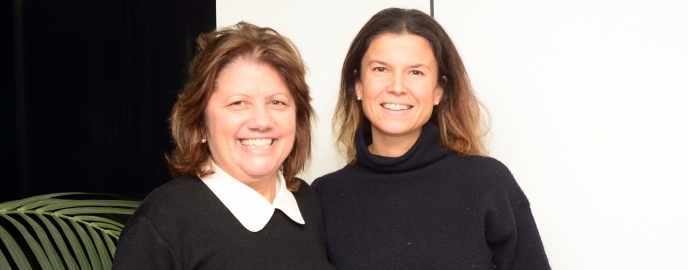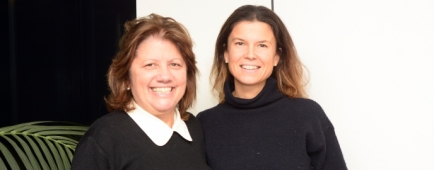MEDIO DE PUBLICACIÓN
13.09.18 Diario EL PAIS
El Hospital
Prensa
Algunas respuestas sobre reproducción asistida

Especialistas del Hospital Británico dieron una charla para despejar dudas sobre embarazo y fertilidad. Bajo la consigna “Fertilidad: Valoración de la fertilidad y factores de infertilidad”, las doctoras Marisa Dellepiane y Maite Moldes llevaron adelante una charla para socios del Hospital Británico, orientada a despejar dudas a quienes aún no han buscado el embarazo o no han podido concebir. De forma distendida, y a partir de las preguntas e inquietudes de los participantes, las integrantes del Departamento de Ginecología y Obstetricia compartieron información y orientaron a los presentes. “El ochenta por ciento del éxito o fracaso de una fertilización depende del óvulo y no tanto del espermatozoide”, apuntó Dellepiane y recordó que “los mejores óvulos son los que salen primero”, por lo que el resultado dependerá “de la reserva ovárica y de la edad” de la mujer. En el mismo sentido sostuvo que “la principal causa de que haya trastornos reproductivos es que las parejas empiezan a buscar embarazos a edades avanzadas”. “Hago reproducción asistida en el Hospital Británico desde 1994 y las consultas por dificultad para concebir han ido siempre en aumento. La causa de este incremento se debe fundamentalmente a la búsqueda cada vez más tardía del embarazo. Esto determina que cuando la pareja comienza a buscar su primer hijo, casi siempre luego de los 30 años y muchas veces después, nos encontremos con dificultades múltiples que no se ven en el grupo de parejas menores de 30 años”, graficó. “Cuando los óvulos están más grandes es más complicado”, graficó y agregó que también existen otros factores como el peso, el stress o la vida sexual, que condicionan el resultado e inciden en el éxito o el fracaso del proceso de fertilización. Las especialistas también plantearon alternativas. “El paso del tiempo es inexorable. Existe la preservación de la fertilidad: obtenemos los gametos femeninos y los guardamos. Es como congelar el tiempo”, apuntó Moldes. Mientras el proceso con óvulos propios muestra una tasa baja, con óvulos donados arroja una alta tasa de embarazos. A su vez, con óvulos propios se registra una alta tasa de abortos y de anomalías cromosómicas, frente a una baja tasa de ambos con óvulos donados. “En el Uruguay se realizan todos los procedimientos disponibles en el mundo. Desde hace muchos años contamos con infraestructura y profesionales para hacer todas las técnicas que el conocimiento científico ha logrado poner en práctica”, subrayó por su parte Dellepiane. “En el Hospital Británico se estudia completamente la pareja con infertilidad y se hacen tratamientos de reproducción asistida de baja complejidad desde hace muchísimos años”, recordó. La duración de los tratamientos de reproducción asistida “varía mucho de una pareja a otra. Hay parejas que apenas consultan logran el embarazo, mientras que otras por diferentes motivos necesitan años para lograrlo. Cualquiera de los procedimientos se realizan en un mes, pero la puesta a punto antes de ingresar a programa lleva más tiempo y cuando fracasan los tratamientos hay que repetirlos”. La inseminación artificial, informó, tiene una tasa de embarazo por ciclo de 18% mientras que la fertilización in Vitro puede ofrecer tasas de hasta un 50% dependiendo del grupo etario.
Dras. Marisa Dellepiane y Maite Moldes, especialistas en fertilidad del Hospital Británico

